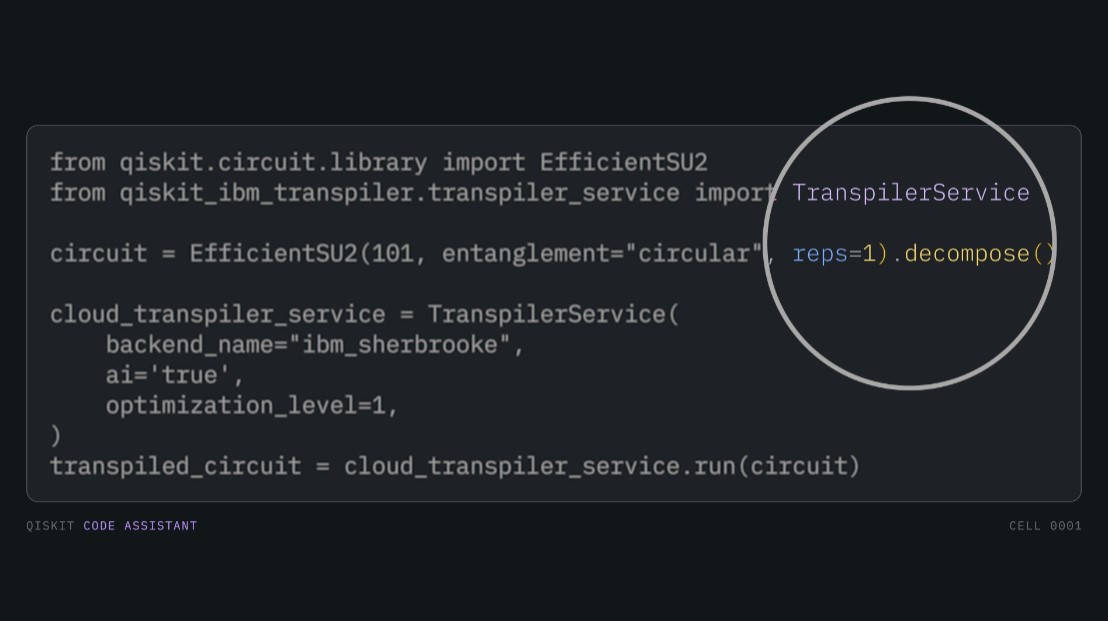IBM Releases Qiskit Code Assistant to Streamline Quantum Coding with AI Tools

Insider Brief:
- IBM has launched the Qiskit Code Assistant in private preview, integrating Watsonx large language models to help users generate and optimize Qiskit code efficiently within Visual Studio Code and JupyterLab environments.
- The tool simplifies quantum programming by offering code generation from natural language prompts, cleaning up rough code, and providing hands-on learning, with performance evaluation using the Qiskit HumanEval benchmark.
- IBM plans to open-source key components of the Qiskit Code Assistant, including the Qiskit Granite model and HumanEval dataset, to encourage collaboration and further development in the quantum community.
In a recent blog post, IBM announced the release of the Qiskit Code Assistant, now available in private preview as part of the IBM Quantum Premium Plan. The tool integrates IBM’s advanced large language models from Watsonx with the extensive knowledge base of the Qiskit user community, providing quantum developers a new way to generate and optimize Qiskit code with minimal effort.
According to the announcement, Qiskit Code Assistant is intended to reduce the complexity of quantum coding, making it more accessible to users while providing a hands-on approach to learning. The tool assists users in writing better Qiskit code by simplifying the development process, optimizing quantum programs, and helping users generate quantum circuits more quickly and efficiently.
Features and Capabilities
The Qiskit Code Assistant integrates with popular development environments such as Visual Studio Code and JupyterLab. Users can install the tool within these environments and utilize it to generate quantum code through natural language prompts or function definitions. For instance, users can request code to “define a Bell circuit and run it on ibm_brisbane using the Qiskit Runtime Service.” The assistant can also clean up rough code or fill in missing pieces.
This new functionality, IBM noted, was first introduced at the 2023 IBM Quantum Summit, alongside other AI-enhanced quantum software features. During the Summit, IBM also provided an early preview of the Qiskit HumanEval benchmark, a tool developed to assess the performance of the generative AI models behind the Qiskit Code Assistant.
Evaluation and Performance
IBM’s testing using the Qiskit HumanEval benchmark has shown that the Qiskit Code Assistant outperforms other available models for quantum code generation. The benchmark consists of approximately 150 tests across eight categories, covering fundamental tasks like quantum circuit generation, algorithm implementation, and state preparation. According to the company, the Qiskit Code Assistant demonstrated a higher success rate in generating functional quantum code compared to other models such as CodeLlama and Starcoder.
The granite-8b-qiskit model, which powers the assistant, was trained on IBM’s Granite Code model and additional Qiskit-specific data collected from Python scripts, Jupyter notebooks, and GitHub repositories. IBM also used synthetic data from Qiskit tutorials to bolster the model’s general understanding of quantum computing.
Looking Ahead
IBM has plans to release key components of the Qiskit Code Assistant project as open-source tools. These include the Qiskit Granite model and the Qiskit HumanEval dataset, which the company hopes will encourage collaboration within the quantum community to further improve the tools.
As quantum software continues to evolve, IBM emphasizes the critical role that AI tools like the Qiskit Code Assistant will play in streamlining quantum development. Looking ahead, IBM plans to continue fine-tuning the assistant’s accessibility and functionality, with plans to make it more performant and user-friendly.
According to IBM, the Qiskit Code Assistant is available for immediate use by participants of the IBM Quantum Premium Plan. Users are encouraged to refer to the official documentation for installation instructions and detailed guidance.
